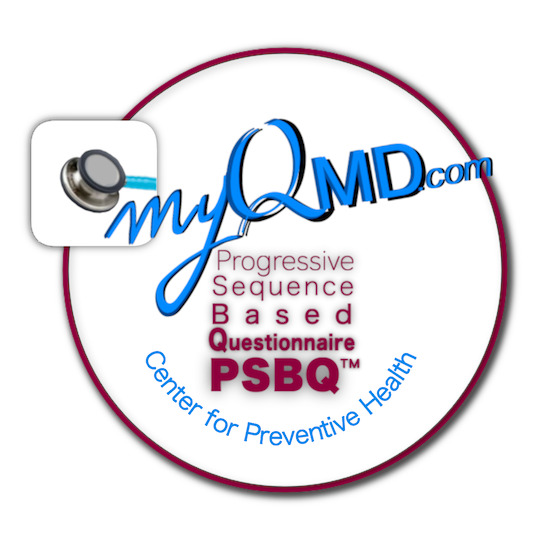1. Introduction
Why is sexual and relationship education important for reproductive health?
Sexual and relationship education is vital for reproductive health as it provides individuals with the knowledge and skills to make informed decisions about their sexual activities, understand their bodies, and engage in healthy relationships, thereby reducing the risk of sexually transmitted infections (STIs) and unplanned pregnancies.
How can having informed knowledge about sexual and relationship health lead to healthier decisions?
Informed knowledge empowers individuals to understand and respect their own and others’ sexual boundaries, recognize healthy versus unhealthy relationship dynamics, and choose safe sexual practices. This awareness leads to healthier decisions that can prevent health risks and enhance overall well-being.
What is the aim of this educational content regarding sexual and relationship education?
The aim of this content is to provide comprehensive, accurate, and accessible information about sexual and relationship health, equipping individuals and couples with the knowledge to engage in safe, consensual, and fulfilling sexual relationships.
2. Everyday Health Wisdom
What are some general tips for maintaining healthy sexual and relationship practices?
General tips include practicing safe sex, such as using protection to prevent STIs and unplanned pregnancies, maintaining open and honest communication with partners, regularly getting sexual health screenings, and respecting each other’s boundaries and consent in every aspect of the relationship.
Why is open communication, consent, and respect critical in relationships?
Open communication, consent, and respect are critical in relationships as they foster trust, mutual understanding, and a safe environment where both partners feel valued and heard. This foundation is essential for a healthy, sustainable relationship and sexual satisfaction.
How does emotional well-being intertwine with sexual health?
Emotional well-being and sexual health are deeply intertwined, as emotional issues can impact sexual desire, performance, and satisfaction, while a fulfilling sexual relationship can enhance emotional connection, self-esteem, and overall mental health.
3. Active Health Management
How can individuals actively manage their sexual and relationship health?
Individuals can actively manage their sexual and relationship health by staying informed about sexual health, communicating openly with partners, engaging in regular health screenings, and addressing any concerns or issues as they arise.
Why is it important to seek professional guidance for sexual or relationship health concerns?
Seeking professional guidance is important because experts can provide accurate information, diagnosis, and treatment for sexual health issues, and offer counseling or therapy for relationship problems, leading to better outcomes and improved well-being.
What benefits come from openly communicating with healthcare providers and relationship counselors?
Openly communicating with healthcare providers and counselors allows for personalized advice, early detection and treatment of any issues, and helps in building strategies to improve sexual and relationship health, fostering a healthier and more satisfying life.
4. Comprehensive Understanding
a. Statistical Insights
What statistics show about common relationship issues and sexual health concerns?
Statistics indicate that about half of all adults will experience a mental health issue impacting their relationships at some point. Regarding sexual health, the CDC reports millions of new sexually transmitted infections (STIs) annually in the U.S., with young adults accounting for a significant proportion.
Are there any notable demographic trends in sexual and relationship education?
Young adults, particularly those aged 15-24, often receive less comprehensive sexual education, leading to higher rates of STIs and unintended pregnancies. Additionally, marginalized groups may face barriers in accessing quality sexual and relationship education.
Why is being aware of the importance of education in sexual and relationship health crucial?
Awareness is crucial because it leads to better understanding and management of personal sexual and relationship health, reduces the stigma surrounding these topics, and promotes healthier, more informed decisions.
b. Case Studies
Can you share examples of how sexual and relationship education benefited individuals or couples?
One couple, after attending relationship counseling, learned effective communication skills, which resolved their ongoing conflicts and strengthened their bond. Another example is a young adult who, after comprehensive sexual education, made informed decisions about contraception, significantly reducing the risk of unintended pregnancy.
How did this education positively impact their relationships and sexual well-being?
In these cases, education led to improved communication, better understanding of each other’s needs, healthier sexual practices, and overall enhancement of relationship satisfaction and sexual well-being.
c. Expert Opinions
What insights do relationship experts and sexologists offer on these topics?
Experts emphasize the importance of open communication, mutual respect, and ongoing education as key to healthy relationships and sexual experiences. They advocate for addressing myths and misconceptions and tailoring education to individual needs.
Could you provide a quote or perspective from a specialist in sexual and relationship education?
“Education in sexual and relationship health is not just about prevention; it’s about enhancing quality of life, deepening connections, and empowering individuals to make choices that align with their values.” – Dr. Alex Richardson, Sexologist.
5. Extending Prevention
What measures can be taken beyond basic sexual education to foster healthy relationships?
Beyond basic sexual education, measures such as relationship counseling, communication workshops, and education on emotional intelligence can foster healthy relationships by improving understanding, empathy, and conflict resolution skills.
How can recognizing early signs of relationship issues and seeking help be beneficial?
Recognizing early signs of relationship issues and seeking help can prevent these issues from escalating, provide tools to resolve conflicts, and strengthen the relationship through better understanding and communication.
Why is preventative action important in maintaining positive and healthy relationships?
Preventative action is vital as it addresses issues before they become severe, promotes ongoing communication and mutual respect, and helps maintain the overall health and happiness of the relationship.
6. Lifestyle and Behavior Modification
What lifestyle modifications can enhance relationship and sexual health?
Modifications like practicing effective communication, prioritizing quality time together, managing stress, and maintaining physical health can enhance relationship and sexual health by fostering intimacy, understanding, and mutual satisfaction.
How do communication, trust, and intimacy factors influence relationships?
Communication, trust, and intimacy are foundational elements of a healthy relationship. They foster a safe environment where partners feel valued and understood, leading to stronger bonds and a more fulfilling relationship.
What behaviors and choices are encouraged for healthy relationships?
Encouraged behaviors include open and honest communication, showing appreciation and respect, actively listening to your partner, maintaining sexual health, and jointly making decisions that respect both partners’ needs and boundaries.
7. Preventive Screening and Health Monitoring
Why are regular relationship check-ins and sexual health screenings important?
Regular relationship check-ins help couples maintain open communication, address any issues early, and strengthen their connection. Sexual health screenings are crucial for early detection and treatment of sexually transmitted infections (STIs), ensuring both partners’ health and preventing potential complications.
What role does therapy or counseling play in addressing relationship challenges?
Therapy or counseling provides a safe and structured environment for couples to explore and address relationship challenges. It offers professional guidance, helps develop effective communication skills, and fosters understanding and resolution of underlying issues.
What common concerns or misconceptions about sexual health and relationships should be addressed?
Common concerns include fears about STI testing and misconceptions that relationship issues signify failure. Addressing these involves educating about the normalcy of relationship challenges and the importance of regular STI testing for maintaining sexual health.
8. Empowering Patients
How can individuals and couples be empowered through sexual and relationship education and counseling?
Education and counseling empower individuals and couples by providing them with the knowledge, skills, and tools to make informed decisions about their sexual and relationship health. They help in understanding one’s own and their partner’s needs, leading to more fulfilling and healthy relationships.
What resources are available for finding specialists in sexual health and relationship counseling?
Resources include referrals from primary healthcare providers, directories from professional organizations, community health centers, and online platforms dedicated to sexual health and therapy services. Many regions also offer confidential helplines and websites for guidance.
Why is open communication with professionals important for making informed choices in these areas?
Open communication with professionals ensures that individuals receive personalized advice and support tailored to their specific needs. It facilitates a better understanding of health issues and helps in making informed, confident choices regarding sexual and relationship health.
9. Conclusion
What are the key takeaways from this content on sexual and relationship education?
The key takeaways are the importance of regular sexual health screenings, the benefits of relationship counseling, the role of education in enhancing sexual and relationship well-being, and the need for open communication and consent in all aspects of relationships.
Why is this type of education vital for reproductive health and overall well-being?
This education is vital as it promotes healthier sexual behaviors, fosters stronger and more respectful relationships, and helps individuals navigate challenges in their sexual and relational lives, contributing to overall mental and physical well-being.
How can individuals and couples proactively seek education and support for healthier relationships and sexual health?
Individuals and couples can proactively seek education and support by utilizing available resources, attending workshops or counseling sessions, staying informed about sexual health, and maintaining open lines of communication with each other and healthcare professionals.



